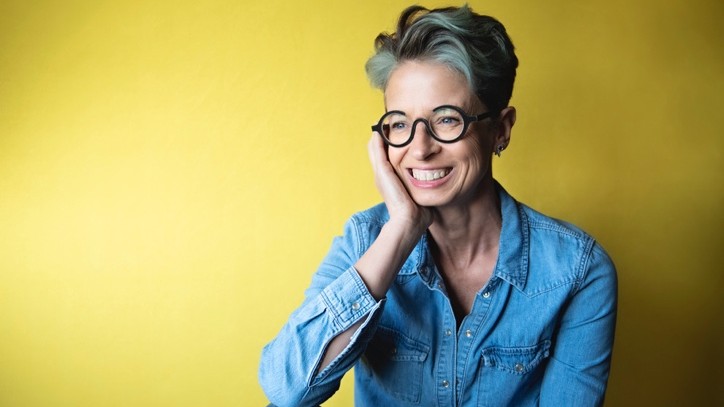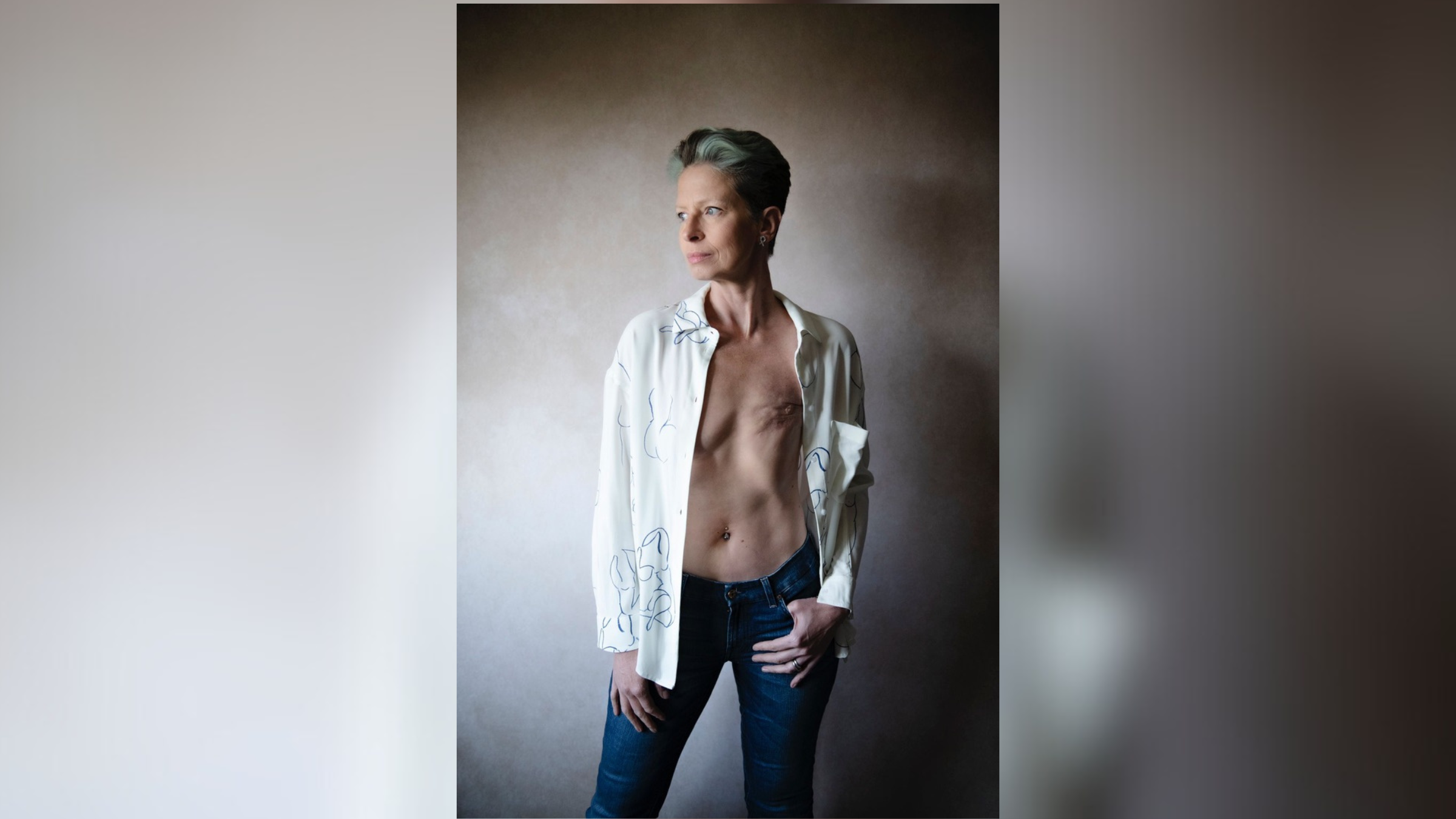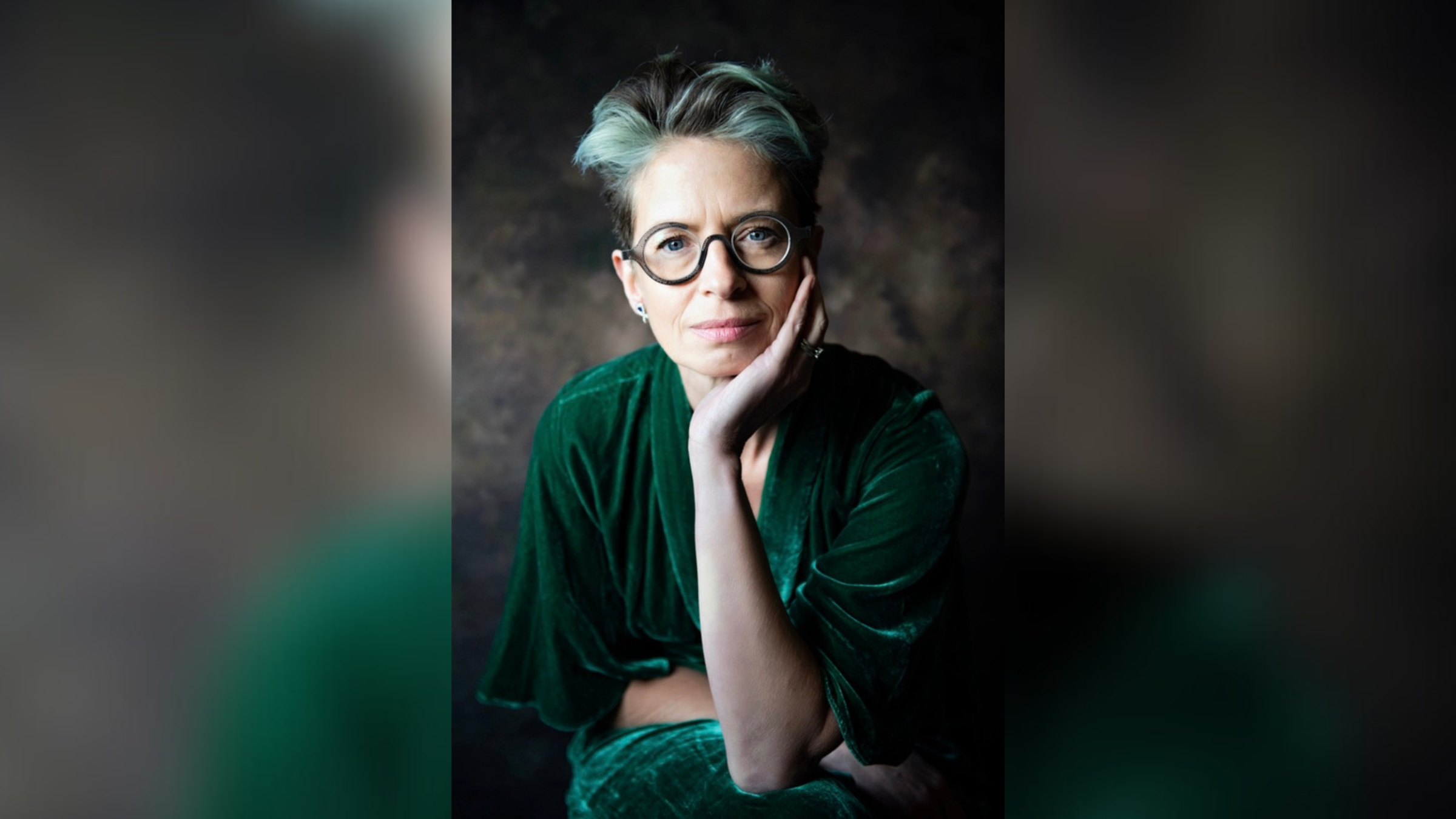Should people get their health information from YouTube? Retired surgeon and content creator Liz O'Riordan on 'breaking through the nonsense'
Retired breast cancer surgeon Liz O'Riordan is one of many health care professionals whom YouTube says it trusts to make reliable videos. In this interview, she explains why this seal of approval is so important and what it actually entails.

Get the world’s most fascinating discoveries delivered straight to your inbox.
You are now subscribed
Your newsletter sign-up was successful
Want to add more newsletters?

Delivered Daily
Daily Newsletter
Sign up for the latest discoveries, groundbreaking research and fascinating breakthroughs that impact you and the wider world direct to your inbox.

Once a week
Life's Little Mysteries
Feed your curiosity with an exclusive mystery every week, solved with science and delivered direct to your inbox before it's seen anywhere else.

Once a week
How It Works
Sign up to our free science & technology newsletter for your weekly fix of fascinating articles, quick quizzes, amazing images, and more

Delivered daily
Space.com Newsletter
Breaking space news, the latest updates on rocket launches, skywatching events and more!

Once a month
Watch This Space
Sign up to our monthly entertainment newsletter to keep up with all our coverage of the latest sci-fi and space movies, tv shows, games and books.

Once a week
Night Sky This Week
Discover this week's must-see night sky events, moon phases, and stunning astrophotos. Sign up for our skywatching newsletter and explore the universe with us!
Join the club
Get full access to premium articles, exclusive features and a growing list of member rewards.
We've all been there: You have a headache, and after a quick Google search, you're now convinced that you have a rare, incurable disease. Or maybe you or a loved one has just received a diagnosis and you're looking for advice online.
But the internet, especially social media, is flooded with nonsense, making it hard to sift through the weeds and know what to trust.
Over the past few years, YouTube — the world's second-most-popular search engine and social media platform — has launched a new verification system for health care professionals who post content on the site. The aim, according to YouTube, is to help members of the public more "easily navigate and evaluate health information" on the platform. Videos from verified users now have information panels displayed below them, and when users search for specific health-related content, YouTube recommends a selection of videos from authoritative health sources in a carousel, or "health shelf" at the top of the search results.
Related: 'Bionic breast' could restore sensation for cancer survivors
In 2023, Dr. Liz O'Riordan, a published author and content creator with more than 10,000 subscribers on YouTube, was invited to be verified by the platform. A retired breast cancer surgeon, O'Riordan prides herself on making videos that are both informative and, importantly, backed by scientific research.
Live Science spoke with O'Riordan about why she got into content creation and how to make sense of what may seem like a dense fog of misinformation online.
This interview has been condensed and edited for clarity.
Get the world’s most fascinating discoveries delivered straight to your inbox.
Emily Cooke: You've been making Instagram and Twitter [now known as "X"] videos since 2015 but only started your YouTube channel properly in May 2023. What inspired you to get into content creation?
Liz O'Riordan: So I was a breast cancer surgeon who got breast cancer myself in 2015, and I had a local recurrence in 2018 that forced me to retire. While I was off during chemotherapy, I wrote a book [The Complete Guide to Breast Cancer] with another doctor who had breast cancer. And we realized patients are asking so many questions, and I had no idea what they really wanted to know: what to eat, what to exercise, can you have sex, how to cope with the side effects. None of that I had time to give them. So I started writing that book and putting information out there.
Then, I started writing my memoir, "Under the Knife," about how to become a female surgeon, getting breast cancer and being on the other side. And although I already had one book, publishers said, "No one will take you seriously unless you have more than 10,000 followers on Instagram." And at the time, Twitter was my cancer space, and I mainly Instagrammed about sewing my own clothes and volunteering at a hedgehog shelter and sports. So I got 10,000 followers in six months, but they still said no one will buy the book. But as a way of growing my Instagram channel, I started putting little videos out, just explaining the basics of breast cancer and that kind of grew traction, and it was a way for me to help people and to share.
YouTube reached out to quite a few of us and said, "YouTube is now the new Google," and what we want to do is try and get sensible health information to the top of the search page. So, to do that, we still had to get 1,000 followers and 4,000 hours of watch time.
EC: What did the YouTube verification process look like?
LOR: You set up your YouTube channel and do all the hard work, but if you get to these numbers, then [they] will give you the tick [showing you're verified]. They [YouTube] are launching it in the U.K., they're going to launch in America, a couple of big countries all over the world, just to try and get a credible source out there. They don't check what we put out. I could say, "Carrots cure cancer," and YouTube wouldn't say that's wrong. YouTube does not have the time to check our content. It trusts us to put out sensible information.
Related: Cancer screening may not extend lives, new study suggests. But experts say it's flawed.
EC: So it's literally just saying you are a licensed doctor?
LOR: Yeah. If you're a licensed doctor, we think what you're saying is common sense so as to bump us up to the top of the Health channel. So if someone's searching and an item we say comes up in their feed, our video should be at the top because we're licensed doctors who are meant to be sensible.
EC: Across social media, in your opinion, who do you think should take the responsibility for regulating this medical content?
LOR: No one can check that anything's accurate because no one has the time — because it would take hours just to check all the references, I say. No one is ever going to do that.
I think we are relying on the public to understand stats and numbers and who's sensible and who's not. And a lot of it is word of mouth, or a viral video that's funny that gets watched. And it's really hard to break through the virality, the nonsense, that is very seductive. Everything's right; nothing's wrong; we don't have any failures. Of course, it sounds great, and "I did a podcast with this big famous guy," and "Oprah mentioned me and therefore it must be true." It's like that. And it's really hard, when you're not a celebrity, with a relatively small channel to try to say, "Please listen to me; this is nonsense."
Hopefully, the YouTube health shelf may get that out there to start with so that people do realize.
But often, it's boring to watch. So it's really hard trying to make a video exciting when you're talking about health stuff. I'm going to spend 10 minutes talking about breast cancer surgery. There isn't sexy B-roll footage of rockets zooming in, and that's not my style.
Related: AI predicts 5-year breast cancer risk better than standard tools — but we aren't sure how it works
EC: What advice would you give to a member of the public who is trying to sift out all of this misinformation?
LOR: I just read a brilliant book by Ross Atkins [The Art of Explanation]. He comes back to "What's the source? Where is that information from?" If someone tells you that apricot kernels cure cancer, where have they got the information from? Just take a minute: Does that sound sensible? Is someone else telling you?
But if it's a qualified doctor saying this is true, and they can back it up, that's more likely to be believable.
I think it's not believing everything you hear — where is the evidence to back it up by an external source?
I think it's trying to remind them to have a little bit of common sense. A lot of it is "cans" and "mights" and "shoulds," so turmeric might reduce the risk of you getting breast cancer, so go buy a turmeric latte and a turmeric supplement and turmeric enemas on the word "might." But you wouldn't go and buy a house because it might make you get into a school.
Related: Breast cancer screening should start at age 40, expert task force says
EC: Do you think we need more doctors making this kind of content?
LOR: I think we do.
I think the more doctors there are all saying the same thing, the same message, is just going to break down the idiots out there saying rubbish.
I think, initially, people are scared of being trolled. I get death threats. You learn to ignore them; it's not pleasant. One of my most viral videos was saying that sugar doesn't cause cancer. And people are saying, "Don't trust anyone with glasses like her," and "How much is Big Pharma paying you?" and you learn to not reply.
But I think the more doctors out there interacting with patients, saying, "What do you want to know? Let me help you. I can't give you personal advice, but I can give you general advice," will really, really help. I used to tell patients, "Don't Google. I will give you a pile of leaflets," and the first thing I did after breast surgery was Google. My mom was diagnosed with cancer — I Googled, and Google is a scary place. I think being able to say, "It was on the YouTube health shelf. It's 99% sensible; you can trust it. Go there" [is going to help].
EC: Do you have any other thoughts on this topic you wanted to share?
LOR: I think, for me, we need to educate the general public in how to understand what they're seeing and how to know what's right and what's not and how not to get sucked in.
If it worked, your doctor would tell you, "It's not a big secret; it's not Big Pharma." But it's a bit like the COVID and Facebook cults. You know, the anti-vax cult people believe what they're going to believe. And all you can do is chip away and hope people will hear. But I think getting it out there — if we're on the health shelf, we're a trusted source of advice. You can come to us. We'll hopefully start to break through the nonsense.
Editor's Note: O'Riordan's YouTube content is monetized, meaning she receives payment tied to the viewership on her videos.

Emily is a health news writer based in London, United Kingdom. She holds a bachelor's degree in biology from Durham University and a master's degree in clinical and therapeutic neuroscience from Oxford University. She has worked in science communication, medical writing and as a local news reporter while undertaking NCTJ journalism training with News Associates. In 2018, she was named one of MHP Communications' 30 journalists to watch under 30.
 Live Science Plus
Live Science Plus












